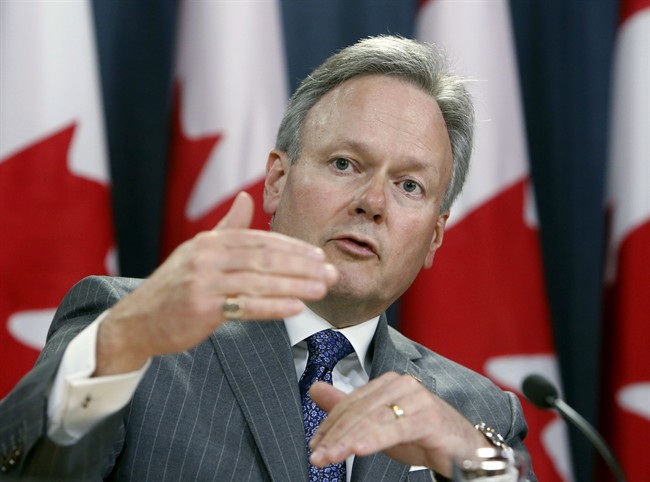The Bank of Canada will likely raise its trendsetting interest rate again tomorrow, two of Canada’s big banks are predicting. The move, which would follow an initial hike in July, would further raise borrowing costs for Canadians on anything from mortgages to lines of credit.

Canada’s stellar economic report for the period between April and June prompted CIBC to revise its interest rate forecast last week.
READ MORE: Canadian economy smashes expectations with 4.5 per cent growth
Data from Statistics Canada revealed the economy expanded at an annualized rate of 4.5 per cent in the April to June period, far above economists’ consensus forecast of 3.7 per cent.
WATCH: How will homeowners be affected by a higher interest rate?

CIBC had previously predicted Canada’s central bank would wait until October to lift interest rates again.
Scotiabank is also expecting a rate increase of a quarter of a percentage point on Wednesday.
The rest of Canada’s big six banks, however, continue to forecast an October hike.
READ MORE: What you need to know about mortgages if interest rates rise
The BoC started signalling in mid-June that it was ready to start lifting interest rates from historic lows. The Bank raised rates by 0.25 of a percentage point in July and is expected to repeat the move before the end of the year, erasing the two rate cuts it implemented in 2015 in response to the oil-price shock.
All of Canada’s big banks followed the BoC’s lead, by raising their prime lending rates by the same amount, up from 2.7 per cent to 2.95 per cent. Prime rates are the basis for products like variable-rate mortgages and home equity lines of credit.
READ MORE: Mortgage calculator: See how rising interest rates affect your payments
Lower interest rates generally stimulate economic activity, by making it cheaper for firms and consumers to borrow.
Higher interest rates usually have a cooling effect on growth, helping to keep inflation in check.
WATCH: What is an interest rate?

The Canadian economy has been steaming ahead at a much faster rate than the BoC expected. Indeed, the central bank has had to constantly update its GDP forecast for 2017 to “catch up” to the economy’s actual pace, Derek Holt, vice-president of Scotia Economics, noted last week.
Inflation, however, has remained subdued, leading many economists to argue that there is no urgency for the BoC to hike in September.
READ MORE: Interest rates hikes: Who are the winners and losers?
The strength of the Canadian dollar is another reason why the central bank might want to wait, BMO’s Benjamin Reitzes wrote in a research note this morning. The loonie soared to about 80.5 US cents last week after the strong GDP report was released on Aug. 31.
READ MORE: Here’s what happens to your car loan if interest rates rise
Still, whether it comes in September or October, Canadians will most likely see another interest rate increase by the end of the year, economists agree.
Canadians largely shrugged off the July hike, with households piling on debt faster than at any point since October 2011 during that month, according to recent RBC research.
But as rate increases pile on, families are bound to notice their steeper credit card bills and mortgage costs, according to economist Laura Cooper, who authored the report: “The period marked by a voracious appetite for debt accumulation may thus be nearing its end.”




Comments